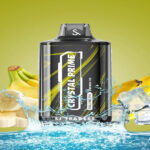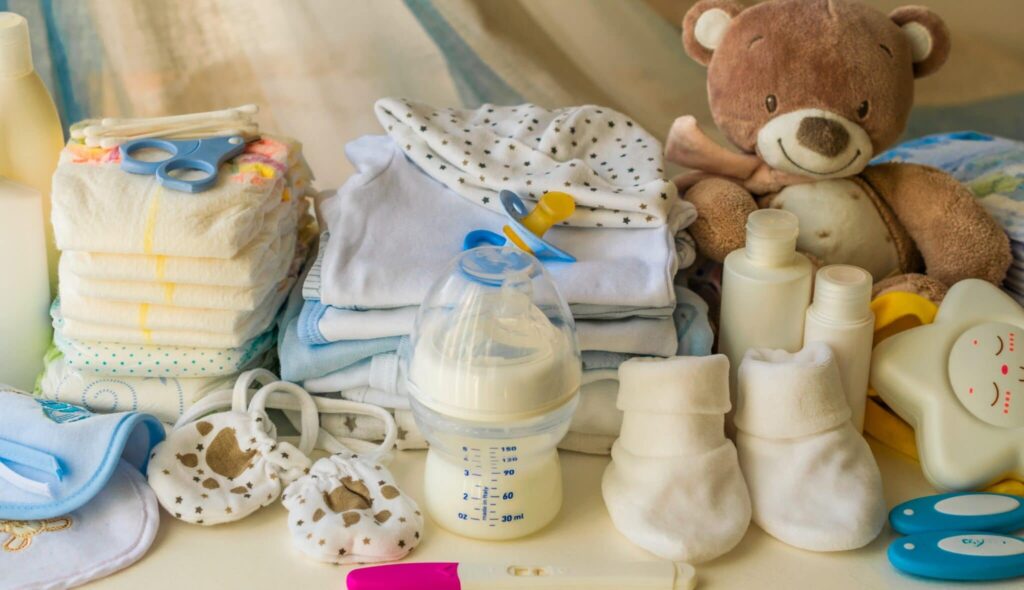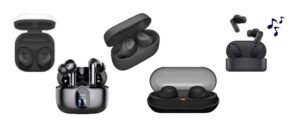Choosing the right toys for your child isn’t just about entertainment—it’s about fostering growth, development, and a lifelong love of learning. Educational toys play a critical role in helping children develop essential skills, including problem-solving, creativity, motor coordination, and social interaction. These toys encourage exploration and curiosity while laying the groundwork for academic success.
In this comprehensive guide, we’ll explore the benefits of educational toys, how they support different developmental stages, types of toys to consider, tips for choosing the best ones, and ways to integrate educational play into everyday life.
What Are Educational Toys?
Educational toys are designed to stimulate a child’s brain development and teach specific skills or concepts through play. Unlike ordinary toys, which may only provide amusement, educational toys offer meaningful challenges and experiences that engage cognitive, emotional, and physical growth.
These toys are crafted to target specific developmental milestones, whether it’s helping an infant develop sensory awareness or encouraging a preschooler to learn letters and numbers. The most effective educational toys combine fun with purpose, motivating children to learn naturally and joyfully.
Benefits of Educational Toys
Educational toys provide a variety of benefits that support your child’s overall development:
-
Enhance Cognitive Skills: Toys such as puzzles, building blocks, and memory games improve problem-solving, critical thinking, and reasoning skills. When children manipulate shapes or solve challenges, they’re training their brains to think analytically and creatively.
-
Promote Language Development: Interactive toys, alphabet blocks, and storybooks encourage vocabulary growth and communication. Early exposure to letters, words, and sounds prepares children for reading and verbal expression.
-
Improve Motor Skills: Manipulative toys like stacking cups, bead mazes, and art supplies develop fine motor control and hand-eye coordination. These skills are essential for writing, self-care, and daily tasks.
-
Encourage Creativity: Art kits, musical instruments, and open-ended building toys inspire imagination and self-expression. Creative play allows children to experiment and discover new ways of thinking.
-
Support Social Skills: Board games and group activities teach sharing, turn-taking, cooperation, and empathy. Social interaction during play is vital for emotional intelligence and relationship building.
Types of Educational Toys by Age Group
Every stage of childhood brings different developmental needs and abilities. Choosing toys appropriate for your child’s age maximizes benefits and enjoyment.
Infants (0-12 months)
For infants, toys should focus on stimulating the senses and encouraging exploration. Soft sensory toys with varied textures, rattles that produce sound, and high-contrast books can help develop sight, touch, and hearing. Toys that encourage reaching and grasping support motor skill development and hand-eye coordination.
Examples include plush sensory balls, teething rings with different textures, and simple activity mats.
Toddlers (1-3 years)
Toddlers are discovering cause and effect, object permanence, and early problem-solving. Toys like shape sorters, stacking blocks, and simple puzzles promote these cognitive skills while also building hand-eye coordination.
Pretend play sets (kitchens, toolkits) introduce imagination and social understanding. Toddlers also begin exploring language through interactive toys that introduce letters, numbers, and sounds.
Preschoolers (3-5 years)
Preschoolers benefit from toys that encourage literacy, numeracy, and creativity. Letter and number games, beginner board games, and puzzles help with early math and reading skills.
Pretend play becomes more complex, enhancing social skills and empathy. Art supplies and musical instruments develop fine motor skills and creative expression.
School-Age Children (6+ years)
As children grow, they enjoy more challenging puzzles, science kits, strategy games, and STEM toys. These encourage logical thinking, problem-solving, and specialized interests in areas like robotics, chemistry, or coding.
Educational toys for this age group also support social development through cooperative games and activities.
How to Choose the Right Educational Toy
Selecting the perfect educational toy can be overwhelming with so many options available. Here are key factors to consider:
-
Consider Developmental Stage: Choose toys that match your child’s current abilities and challenge them just enough to encourage growth without frustration.
-
Safety First: Ensure toys are made from non-toxic materials, have no small parts that pose choking hazards, and meet safety standards such as ASTM or CPSC certification.
-
Encourage Exploration: Select toys that allow for open-ended play and creativity rather than toys with a fixed outcome or single way to play.
-
Engage Multiple Senses: Toys that stimulate sight, sound, and touch can promote deeper and more varied learning experiences.
-
Look for Quality: Invest in well-made toys that are durable, maintain their appeal, and can be passed down or shared.
-
Easy to Clean: Especially for younger children, toys that can be easily cleaned and sanitized are important.
Incorporating Educational Toys into Daily Play
Educational toys work best when integrated naturally into your child’s routine and environment. Here are some ways to do that:
-
Make Learning Part of Everyday Activities: Count snacks at snack time, identify colors and shapes during walks, or build stories with dolls and action figures.
-
Set Up a Dedicated Play Space: Create a space filled with educational toys that invite exploration, free play, and focused learning.
-
Rotate Toys: Regularly change the selection of toys to keep your child interested and provide new challenges.
-
Play Together: Engage with your child during playtime to guide learning, encourage curiosity, and model positive behavior.
-
Balance Structured and Free Play: While some educational toys provide direct teaching, allow time for imaginative, unstructured play as well.
The Role of Technology in Educational Toys
Modern educational toys often incorporate technology such as interactive apps, electronic learning games, and coding kits. While technology can enhance learning, balance is key. Look for toys that encourage active participation rather than passive screen time. Hybrid toys that combine hands-on play with digital interaction can be particularly effective when used thoughtfully.
Educational Toys and Boss and Baby
At Boss and Baby, we believe in supporting your child’s developmental journey with toys that combine safety, quality, and fun. Our curated collection of educational toys is designed to inspire curiosity and confidence at every stage, from infancy through school age.
We prioritize soft, non-toxic materials and timeless designs that nurture learning and creativity. Whether you’re looking for sensory toys for your newborn or STEM kits for your school-age explorer, Boss and Baby offers trusted options to empower your child’s growth.
Why Investing in Educational Toys Matters
Providing your child with educational toys is an investment in their future. Beyond early academic success, these toys help develop critical life skills such as:
-
Problem-solving and Adaptability: Learning to approach challenges creatively and persistently.
-
Communication and Collaboration: Building relationships and working well with others.
-
Confidence and Independence: Exploring and mastering new skills on their own.
-
Lifelong Curiosity: Fostering a love for discovery and learning that extends beyond childhood.
Tips for Parents: Making the Most of Educational Toys
-
Observe and Adapt: Watch how your child interacts with toys and adjust choices as their interests and skills develop.
-
Encourage Experimentation: Allow your child to use toys in different ways, even “incorrect” ones, to fuel creativity.
-
Praise Effort, Not Just Success: Celebrate your child’s attempts and progress to build resilience.
-
Connect Play to Real Life: Relate concepts learned during play to everyday experiences.
Conclusion
Educational toys are more than just fun distractions—they’re essential tools that build the foundation for lifelong learning and success. From sensory exploration in infancy to complex problem-solving in school age, the right toys nurture your child’s development across all areas.
By thoughtfully selecting, integrating, and engaging with educational toys, parents can support their children’s growth in a joyful, meaningful way. At Boss and Baby, we are proud to offer a range of quality educational toys designed to empower your child’s journey, making every step an exciting adventure in learning.
- Educational Toys for Kids | Boost Learning & Development
- Discover how educational toys foster creativity, motor skills, and early learning. Find the perfect toys to support your child’s growth with Boss and Baby.
- Educational Toys
Related posts:
 Essentials Hoodie – Clean Aesthetic with Supreme ComfortEssentials Hoodie – Clean Aesthetic with Supreme Comfort
Essentials Hoodie – Clean Aesthetic with Supreme ComfortEssentials Hoodie – Clean Aesthetic with Supreme Comfort
 Sustainable Fashion Market Growth, Trends, and Forecast 2033
Sustainable Fashion Market Growth, Trends, and Forecast 2033
 A Guide to Pittsburgh Funeral Flower Arrangements and Their Meanings
A Guide to Pittsburgh Funeral Flower Arrangements and Their Meanings
 Crystal Prime Deluxe 18000 Box of 10 – Bulk Vape Deal high-capacity, flavorful, rechargeable disposable vapes for long-lasting satisfaction.
Crystal Prime Deluxe 18000 Box of 10 – Bulk Vape Deal high-capacity, flavorful, rechargeable disposable vapes for long-lasting satisfaction.
 R and M Tornado 30000 Puffs Vape Box of 10 Rechargeable, flavorful, and perfect for bulk buyers or retailers. Great value, big clouds.
R and M Tornado 30000 Puffs Vape Box of 10 Rechargeable, flavorful, and perfect for bulk buyers or retailers. Great value, big clouds.
 OVO Hoodie: The Ultimate Streetwear Statement in 2025 Buy Now
OVO Hoodie: The Ultimate Streetwear Statement in 2025 Buy Now
 Yellow Sapphire (Pukhraj): A Complete Guide to the Stone of Wisdom and Prosperity
Yellow Sapphire (Pukhraj): A Complete Guide to the Stone of Wisdom and Prosperity
 Essentials Hoodie Made for Movement, Styled for the Streets of
Essentials Hoodie Made for Movement, Styled for the Streets of







